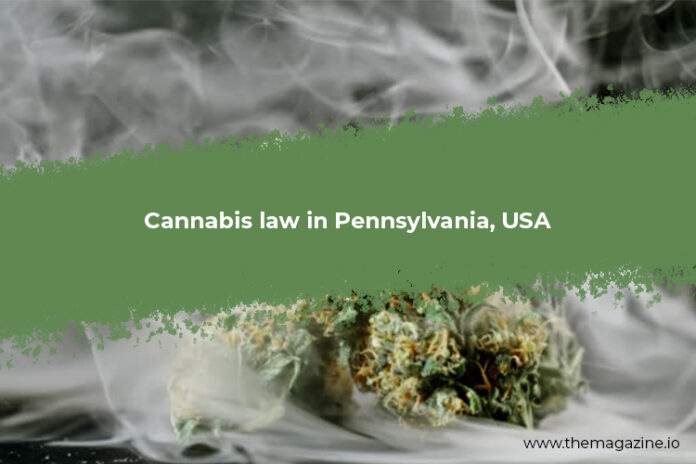Cannabis remains illegal for recreational use in Pennsylvania, but the state has enacted a medical cannabis program that allows patients with qualifying conditions to access medical cannabis products. Here is an overview of the cannabis laws in Pennsylvania:
Medical Cannabis Program
The Medical Marijuana Act was signed into law in April 2016, and the first dispensaries opened in February 2018. Under this program, patients with a qualifying medical condition can obtain a medical cannabis card, which allows them to purchase and use medical cannabis products from licensed dispensaries.
Qualifying Medical Conditions
Pennsylvania’s medical cannabis program has a list of 23 qualifying medical conditions, including:
- Amyotrophic lateral sclerosis (ALS)
- Cancer
- Crohn’s disease
- Glaucoma
- Inflammatory bowel disease
- Multiple sclerosis (MS)
- Neuropathies
- Parkinson’s disease
- Post-traumatic stress disorder (PTSD)
- Severe chronic pain
- Sickle cell anemia
- Terminal illness
Patients with a qualifying medical condition must obtain a recommendation from a physician registered with the Department of Health and apply for a medical cannabis card.
Forms of Medical Cannabis
Medical cannabis products that are allowed in Pennsylvania include:
- Oils
- Tinctures
- Capsules
- Topical formulations
- Liquids for vaporization
- Dry leaf for vaporization
Smoking cannabis is not allowed under the medical cannabis program in Pennsylvania.
Licensing and Regulation
The Pennsylvania Department of Health oversees the medical cannabis program and issues licenses to growers, processors, and dispensaries. The state has a rigorous application process, and only a limited number of licenses are available.
Criminal Penalties for Non-Medical Use
Despite the medical cannabis program in Pennsylvania, non-medical use of cannabis remains illegal. Possession of up to 30 grams of cannabis is considered a misdemeanor offense, punishable by a maximum of 30 days in jail and a fine of up to $500. Possession of more than 30 grams is considered a felony offense, punishable by up to one year in jail and a fine of up to $5,000.
Public consumption of cannabis is also prohibited, and driving under the influence of cannabis is illegal.
Possible Future Legalization
In May 2021, a bill to legalize recreational cannabis was introduced in the Pennsylvania House of Representatives. The bill proposes allowing adults over the age of 21 to purchase and possess up to 30 grams of cannabis and to grow up to six plants for personal use. However, the bill has yet to pass, and it remains to be seen whether recreational cannabis will be legalized in Pennsylvania in the future.
Conclusion
While recreational use of cannabis remains illegal in Pennsylvania, the state’s medical cannabis program provides patients with qualifying medical conditions access to medical cannabis products. The state has a rigorous licensing and regulation process in place, and criminal penalties are in effect for non-medical use. However, with the introduction of a bill to legalize recreational cannabis, the future of cannabis laws in Pennsylvania may be subject to change.



